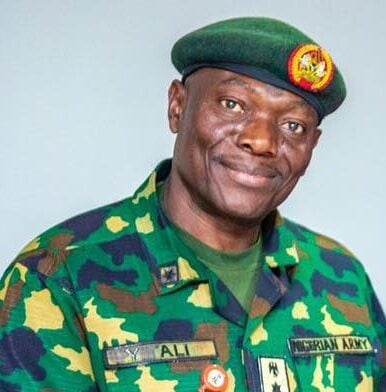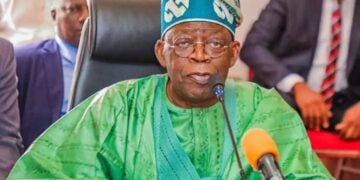The coordinator of Operation Safe Corridor (OPSC), Brig-Gen. Yusuf Ali, says reintegration would be difficult without the community’s acceptance.
Speaking at the National Counter-Terrorism Centre, Abuja, Ali said the programme is being expanded to rebuild trust and promote peace in conflict-affected communities nationwide.
He hinted that the scope and mandate of its reintegration programme under Operation Safe Corridor have been expanded.
The Coordinator said the reintegration programme, initially focused on low-risk ex-combatants, has evolved to include host communities to foster reconciliation and long-term stability.
Operation Safe Corridor was launched in 2016 to provide a non-kinetic approach to addressing insurgency through the rehabilitation and reintegration of repentant ex-combatants.
Ali said that without the communities’ acceptance, reintegration would be difficult.
The senior military officer explained that many of the individuals classified as “clients” were victims of abduction and coercion by insurgents, and not ideologues or masterminds behind the violence.
“Operation Safe Corridor is no longer solely focused on clients. We now actively include host communities in our reintegration strategy because reintegration is incomplete without community acceptance.
“Some were forcibly taken from their homes or highways. Others were handed over by their parents under duress. These are Nigerians caught in a conflict they never asked for,” the Brigadier-General told the gathering.
The OPSC Coordinator added that rigorous screening separated individuals from high-risk elements who were being prosecuted through the criminal justice system.
He lamented the growing stigma faced by rehabilitated ex-combatants despite undergoing a structured process of deradicalisation, rehabilitation and reintegration (DDRR).
According to him, if society refuses to accept or empower them, we are subjecting them to a second punishment, a situation he describes as “double jeopardy.”
He lauded local and international partners for their continued support, saying recent collaborations with the International Organisation for Migration (IOM), the Foreign, Commonwealth and Development Office (FCDO), and the International Institute of Tropical Agriculture (IITA).
He described the recent partnership with IITA as a “breakthrough,” adding that it would support livelihood opportunities for both ex-combatants and members of host communities through skills training and agricultural value chains.
“IITA looked beyond the stigma and saw opportunity. This partnership will empower communities and reinforce national peacebuilding efforts,” he said.
Ali reaffirmed that OPSC remains a key component of Nigeria’s Preventing and Countering Violent Extremism (PCVE) strategy, serving as the operational arm responsible for implementation at the grassroots level.
He appealed for sustained donor support and collaboration to consolidate the programme’s gains.
“With your continued support, we can do more. We must do more. These are Nigerians who deserve the opportunity to start over. Let us not fail them,” he said.
We’ve got the edge. Get real-time reports, breaking scoops, and exclusive angles delivered straight to your phone. Don’t settle for stale news. Join LEADERSHIP NEWS on WhatsApp for 24/7 updates →
Join Our WhatsApp Channel










